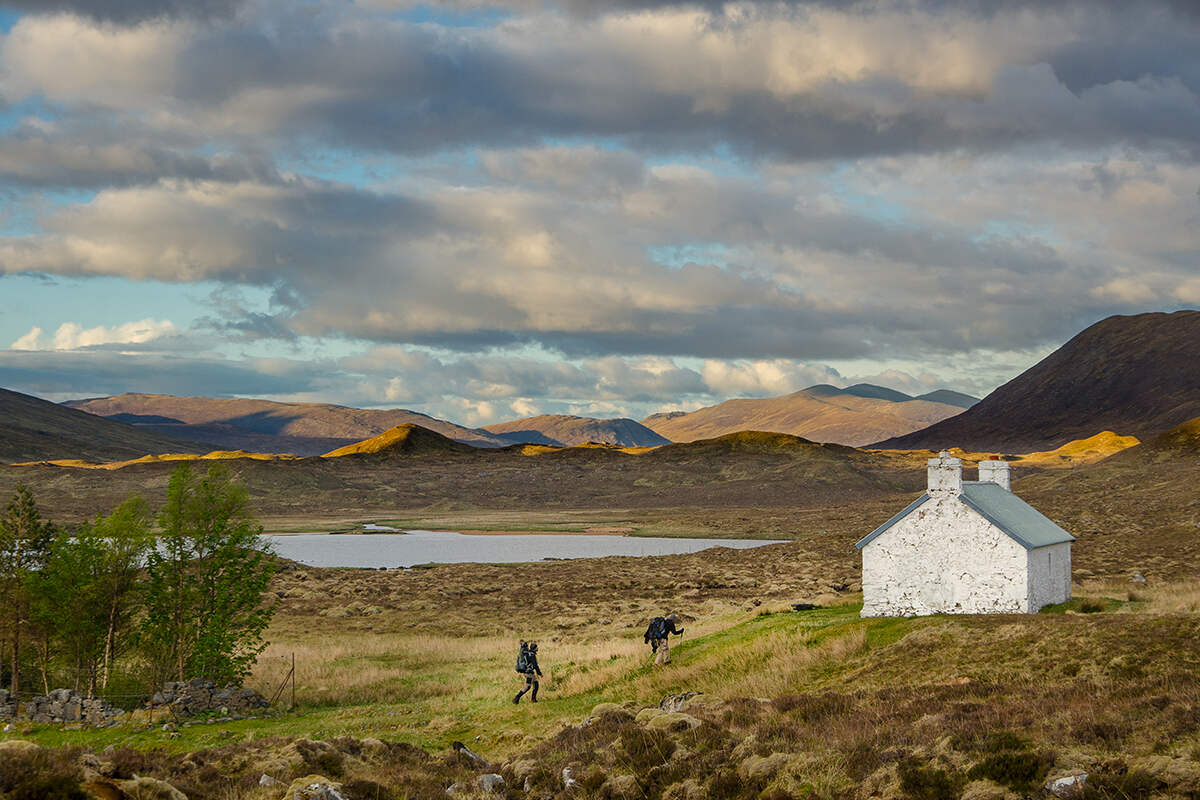
Raynor Winn tells the emotional and inspiring journey of walking Scotland’s Cape Wrath Trail with her husband, who was suffering from a degenerative illness at the time
Review by Charlie Connelly
Walking the 320-kilometre Cape Wrath Trail through the north of Scotland looked like an achievable undertaking for Raynor Winn and her husband, Moth, who at the time was suffering from a degenerative illness. The plans for the jaunt, after all, had been laid out during a warm Cornish spring, when the hardships and perils of what’s considered to be one of Britain’s most challenging long-distance walks appeared remote.
Corticobasal degeneration can cause gradually worsening problems, among other complications, with movement, speech and memory. It would hardly seem to be a condition designed to inspire a tramp through the wilds of the Highlands. The very name sends out an unequivocal warning of what lay in store for these two intrepid walkers.
Trouble emerges even before they set off. Moth collapses on the ground ‘like a dead tree in a high wind’ near their Cornish home. Bringing him around, Raynor proposes a visit to the doctor, only to be met with fatalism. On the trail, Moth, who can barely muster the strength to chat with a couple of mountain bikers they meet, falls headfirst into a stream.
In spite of the mishaps and travails suffered on what becomes a 1,600-kilometre journey back to the shores of the South West Coast Path, they plod on, Raynor never losing confidence in the therapeutic benefits of their gruelling challenge. On they go, resigned to letting fate take its course. ‘Is a thousand miles far enough to turn darkness into light?’ the author asks herself. Can remorselessly pushing a body, weak and besieged with pain, reverse the symptoms of what’s held to be an irreversible degenerative disease? These are the questions that beset Raynor, their mission accomplished, as they wait for the consultant to give them the results of Moth’s DAT scan. Moth says he’s feeling better than he has for years, although he’s sceptical about living to see ‘the screen light up like a Christmas tree’.
Raynor takes Moth’s hand, looking anywhere but at the screen. What the scan results show is best discovered by the reader, who may struggle to keep a dry eye.




